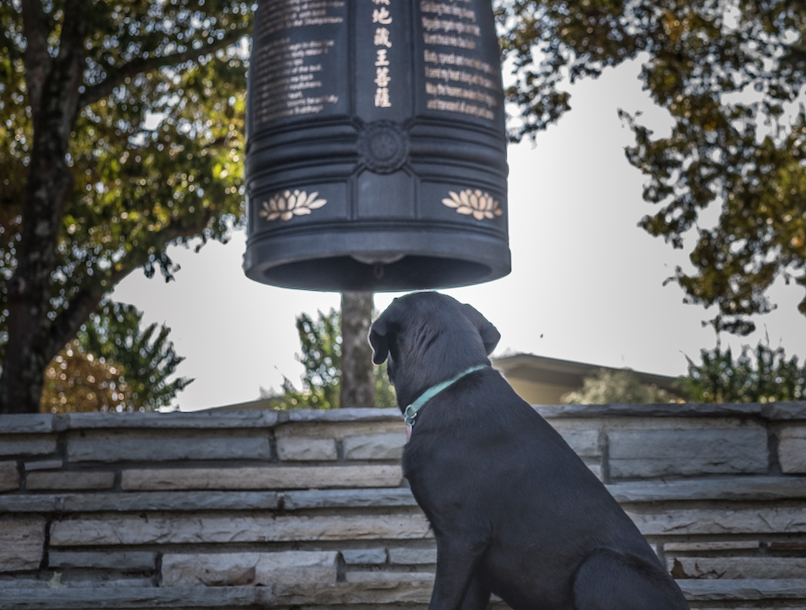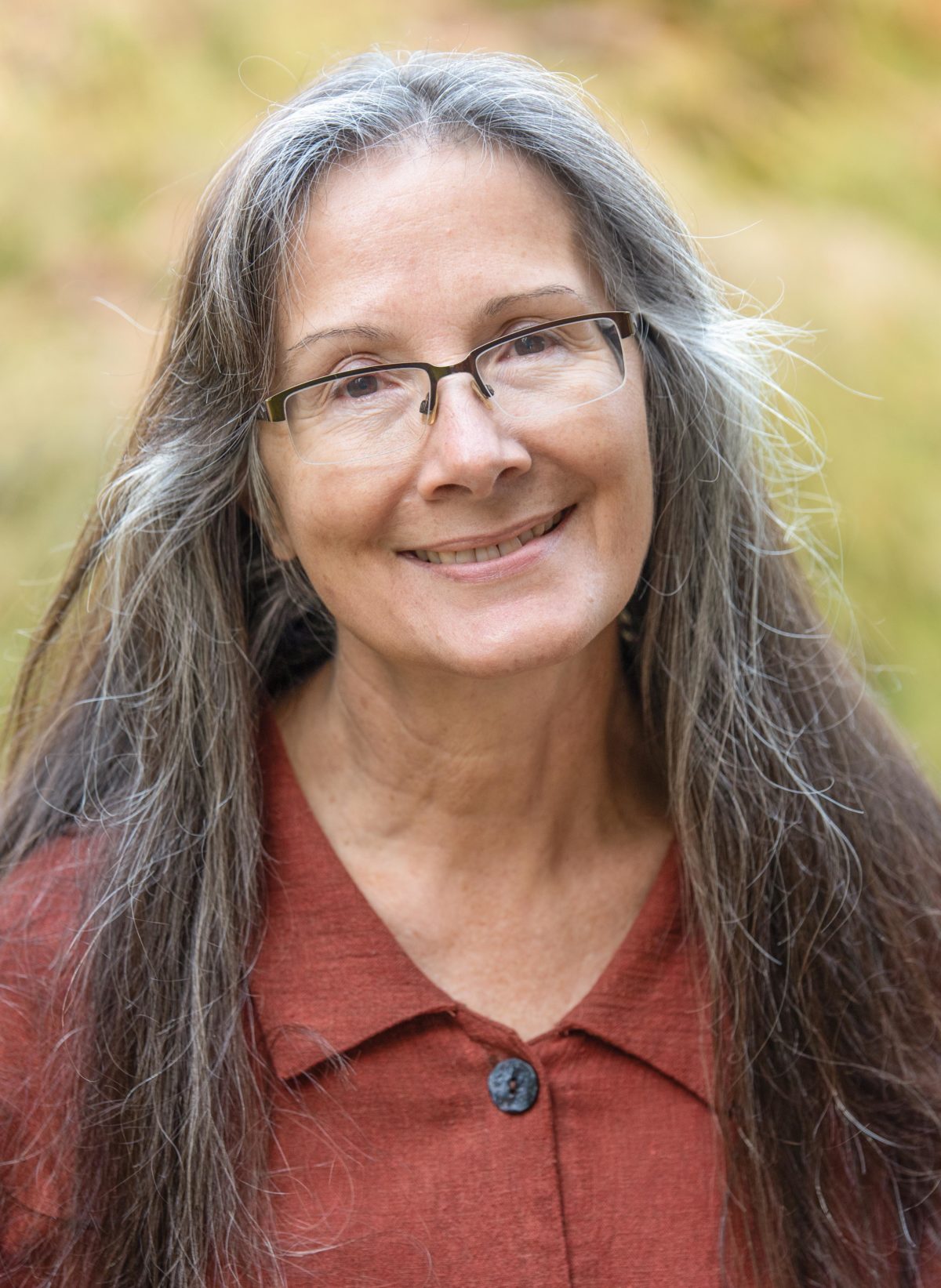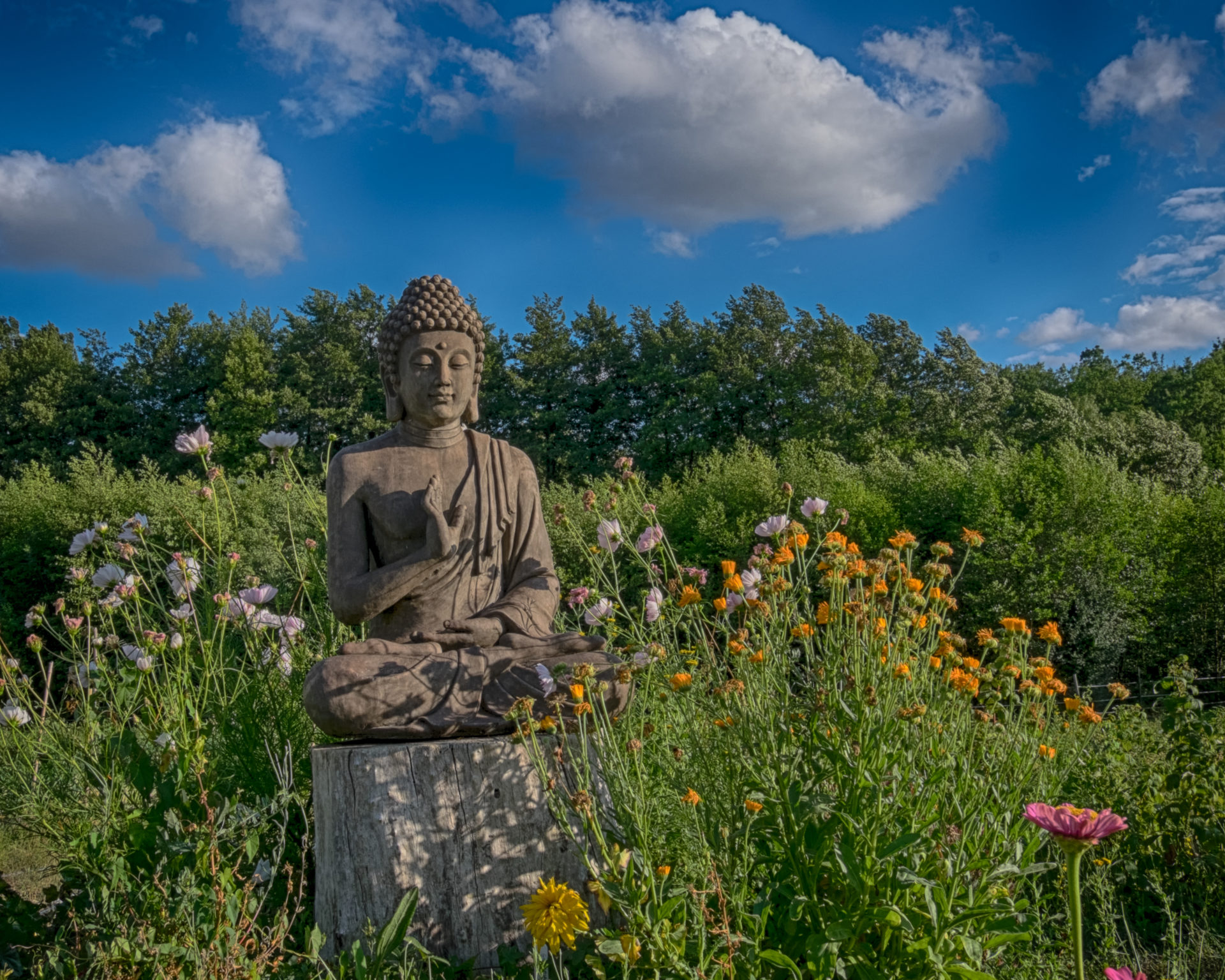By Nadene LeCheminant

When the towering fir trees in the Columbia River Gorge caught fire, ashes drifted a hundred miles downwind, all the way to our home. The sky was murky and the sun red, as ashes settled on my rhododendrons. My eyes stung.
Even meditation was difficult. Breathing in, my throat hurt. Breathing out, I couldn’t expel smoke from my lungs,
By Nadene LeCheminant

When the towering fir trees in the Columbia River Gorge caught fire, ashes drifted a hundred miles downwind, all the way to our home. The sky was murky and the sun red, as ashes settled on my rhododendrons. My eyes stung.
Even meditation was difficult. Breathing in, my throat hurt. Breathing out, I couldn’t expel smoke from my lungs, nor could I let go of panic. We installed an air purifier. I watched at the window and wondered how long this would go on. I ached for blue skies. I wanted to walk outside. I longed for a simple, ordinary day—something like all the other days of my life. Normalcy had suddenly become precious.
When I moved to Oregon, the summers were breezy and mild. At first these hotter temperatures seemed like an aberration. But over time they have become the new norm, one that shifts farther upward every year. Everyone has their own version of climate change. At first, we just read about it in the headlines: floods in Bangladesh, life-threatening heat in Iran, melting ice in the Arctic. But at some point, the larger story becomes our own story. A tornado sweeps away our own trailer, rising waters flood our farm, a hurricane ravages our town.
Here, in Oregon it is red tides in the ocean, dead sea birds washed up on shore, parched trees, and wildfires. When the fires first became infernos and drought began to shrivel our forest canopies, I lost myself to dread. I would sit on my meditation bench and think about Thay’s admonition, “Look deeply into your suffering.” How could I? How could I look into the face of the future and feel anything but despair?
I was not alone. Psychologists have come up with a name for this anguish. They call it eco-anxiety and tell us young people are especially traumatized. Eco-anxiety has been classified not as a mental disorder but as a rational response to catastrophe. Humans have faced war, bloodshed, tyranny, starvation, famines, drought, and floods, but we’ve never faced the existential threat we now face—the collapse of life systems on a planetary scale. The grief for what we—myself included—have done is enormous.
No wonder we’ve given ourselves over to endless distractions. We are good at denial, at losing ourselves to Facebook and endless news feeds and one-click shopping. We look for things to want; corporate advertisers have trained us to be dissatisfied with what we already have, even though our “never enough” mentality does violence toward every species on Earth. But at some deeper level, our distractions won’t change the channel. If we are honest, we can’t ignore our sense of foreboding.
Each night I lit a candle and sat on my meditation bench. I couldn’t embrace my suffering, as Thay taught. So I simply sat with it, and felt it as a weight on my shoulders and ache in my back. Thay has talked about letting go. I have always known I could let go of the small losses, and along the way I am learning I can even live with illness, aging, and my looming mortality. But how can I reconcile myself to this? Not just my own death, but the possible extinction of my species? The slow death of sequoias and marmots and sea turtles and koala bears? I felt hopeless and helpless.
This year, somewhere in the stillness of meditation, answers began to form. A healing began to take hold. There is no reconciliation, in some sense. But in another sense, the act of reconciliation is all I can do. That act includes acknowledging my despair. And when I sit quietly, I know this is not a time for panic. My practice calls on me to put aside anxiety and paralysis. More than ever, this is the moment I have been practicing for: the time to become an anchor in the storm. We are called to nurture kindness and honesty in a chaotic world.
Some people speak of a planetary hospice, for us and for the Earth. When we first face our own mortality, we often grapple with fear, denial, and anger. These feelings mask the underlying emotion, that of heartbreak. But when we accept the truth of our pain, life opens. We care more. We love more. We live as if every day mattered. We inhabit the present moment with more awareness and cultivate a deeper form of gratitude. We plant daffodils and welcome each muddy stalk as a small miracle. We take delight in waltz music and old movies and breakfast with friends.
And despite the abhorrent things we have done to this Earth, she is still there for us, offering pine-scented mornings in the woods, greeting us with rising mist and circling hawks and the rustle of small creatures stirring in the grass. I fall in love with her again and again. When the Douglas fir in our valley succumb to drought, I feel the Earth’s suffering, but I also remain awake to her profound beauty and endless mystery.
The Buddha talked about the value of community. As I sit on my bench, I think, “This isn’t something I can face alone.” We are in this together and can take courage and comfort in our shared distress. This tragedy calls for a deeper compassion, one that reaches across social and economic barriers, one that transcends race, culture, and geography. Aspiring Earth bodhisattvas gather in person and in virtual conversations to talk about how to shift the paradigm from business as usual to one that values all living beings. This includes our Earth Holder Community’s gatherings, which span continents as people move forward together rather than in isolation. In this global community, each of us matters.
In my own life, I have a choice to cultivate mindfulness—in the grocery aisles as I shop and in my garden as I consider which flowers will sustain bees and butterflies. I can make the choice to bike more, buy from farm stands, eat more vegan meals, and live more simply. When I make Earth-friendly decisions, I find these measures don’t limit me. They enrich my life and my relationships. If I want something new or novel, I can skip the mall and walk barefoot on the beach. I also can find purpose in writing letters and attending public hearings about alternative transportation or clean energy bills. The energy of individual actions done out of understanding and compassion can never be lost. Our actions make a difference.
If I slow down, I not only ease the burden on the planet, but I ease the burden on myself. If I have peace within, I can step off the hamster wheel of consumerism and set aside the numbing pursuit of trivial distractions. Many of my actions are shortsighted, and my life is filled with ambiguities and unresolved paradoxes; being human in this time of climate chaos is a messy business. But in my own imperfect way, I am stumbling toward a new balance, one of measuring each thing I buy, each type of food I eat, and each trip I take against its true cost.
I know I’ll continue to grieve, again and again, in an endless loop, when beloved forests are reduced to blackened stumps, when I see a dead whale stranded on the beach, and when the snow on Mount Jefferson disappears earlier in the season. But each morning when I wake, I am grateful for one more ordinary day—a day where I can find contentment in the sudden hush of summer rain, an old cat who likes to purr, and the smell of fresh-baked bread. In this moment, as Thay says, I have more than enough conditions to be happy. Each night I’ll light my candle and create a small flicker in the darkness. I aspire to live from that holy place within, knowing the inner fires of love and gratitude offer an anchor in uncertain times.

Nadene LeCheminant, True Flower Garden, worked as a communications specialist for universities and colleges and as a community nonprofit administrator in Oregon, US. Now retired, she gardens, hikes, reads, and writes fiction. You can visit her website at www.nadenelecheminant.com.

